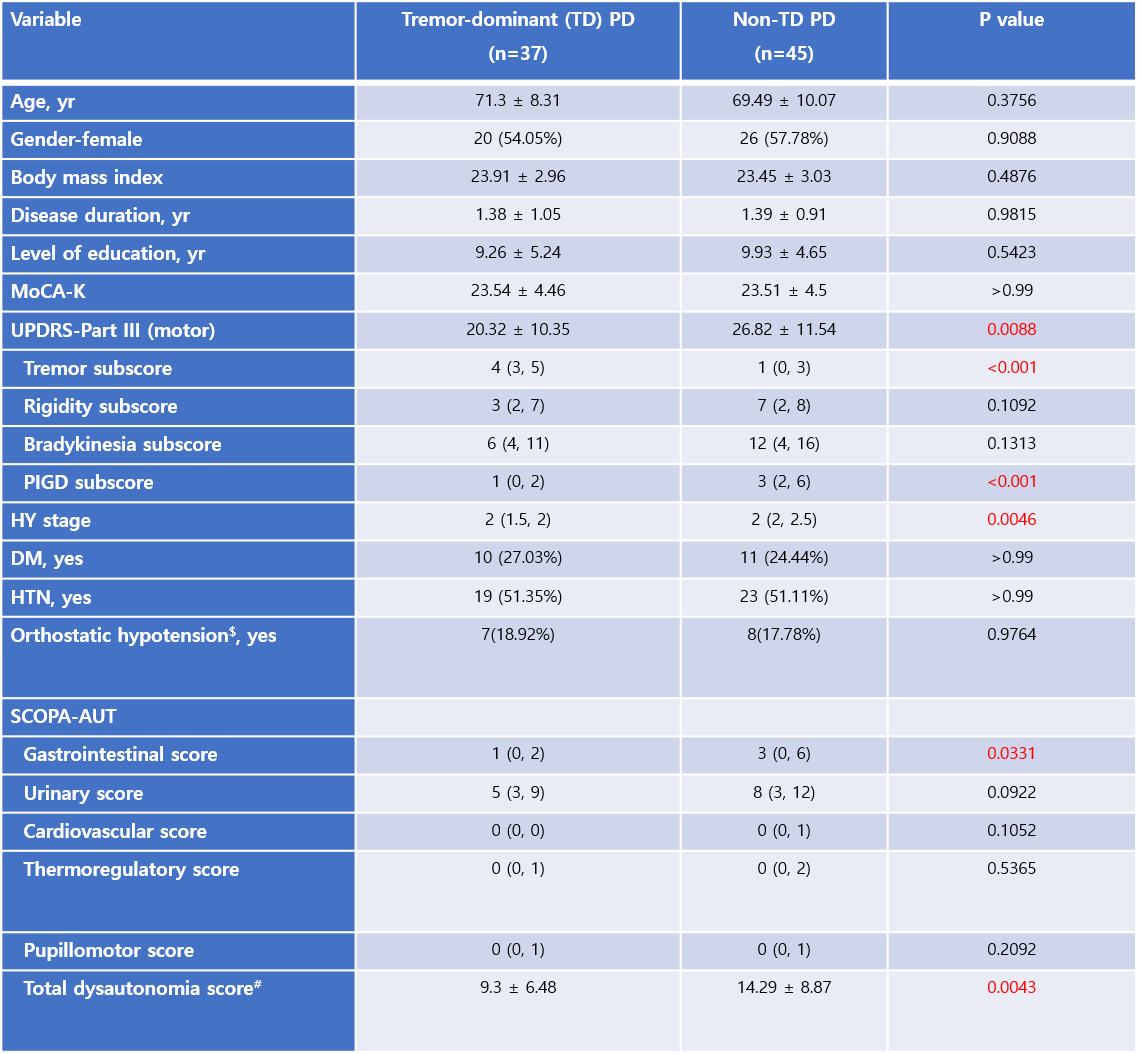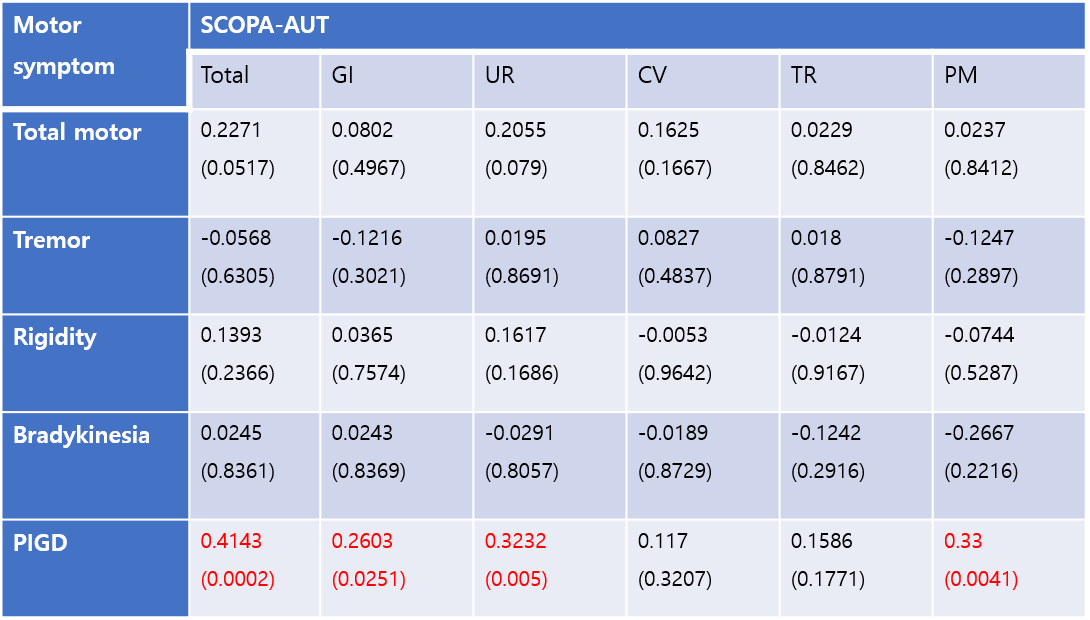Category: Parkinson's Disease: Non-Motor Symptoms
Objective: This retrospective study aimed to investigate the relationship between motor symptoms and autonomic dysfunction in patients with de novo Parkinson’s disease(PD).
Background: Dysautonomia in PD significantly affects the daily lives of patients. It is not well understood which individuals are more prone to developing autonomic dysfunction.
Method: Clinical data relevant to motor symptoms and autonomic dysfunction, were obtained from 82 patients with de novo PD (visits from 2017~2022). Motor symptoms were assessed using the Unified Parkinson’s disease Rating Scale (UPDRS)-motor component, dividing patients into tremor dominant (TD) and non-tremor dominant (non-TD) phenotypes. Total motor scores and subscores for tremor, rigidity, bradykinesia, and postural instability gait difficulty (PIGD) were included for analysis. Autonomic symptoms were evaluated using the Scales for Outcomes in Parkinson’s Disease – Autonomic Dysfunction (SCOPA-AUT).
Results: Compared to TD-type PD (n=37), non-TD type PD (n=45) exhibited more severe motor symptoms as shown by the part III subscore of the UPDRS (mean±S.D; 20.32 ± 10.35 in TD versus 26.82 ± 11.54 in non-TD, p<0.01) and slightly higher Hoehn and Yahr stage {median (interquartile range), 2 (1.5-2) versus 2 (2-2.5), p<0.01}. Additionally, non-TD type PD showed more severe autonomic dysfunction (9.3 ± 6.48 in TD versus 14.29 ± 8.87 in non-TD, p<0.05), particularly relevant to gastrointestinal dysfunction {1 (0-2) in TD versus 3 (0-6) in non_TD, p<0.05}. Partial correlation analysis revealed a close relationship between PIGD subscores and SCOPA-AUT (total scores as well as gastrointestinal, urinary, and pupillomotor subscores).
Conclusion: Based on our analyses, an association between motor symptom severity and autonomic dysfunction in patients with de novo PD was found. Furthermore, a strong correlation between PIGD subscores reflecting axial rigidity, and gastrointestinal dysautonomia, as demonstrated by SCOPA-AUT subscores, was shown. While the role of the gut-brain axis in the pathophysiology of PD has been highlighted in past studies, our study results highlight the association between axial rigidity and gastrointestinal dysautonomia. These results suggest that the role of the gut-brain axis may be particularly relevant in patients with de novo PD who develop postural instability and gait disturbance.
Clinical characteristics of de novo PD patients
Partial correlation analysis
To cite this abstract in AMA style:
KY. Kwon, JE. Park. Association Between Motor Symptoms and Autonomic Dysfunction in De Novo Parkinson’s Disease: Insights into the Role of the Gut-Brain Axis [abstract]. Mov Disord. 2024; 39 (suppl 1). https://www.mdsabstracts.org/abstract/association-between-motor-symptoms-and-autonomic-dysfunction-in-de-novo-parkinsons-disease-insights-into-the-role-of-the-gut-brain-axis/. Accessed April 18, 2025.« Back to 2024 International Congress
MDS Abstracts - https://www.mdsabstracts.org/abstract/association-between-motor-symptoms-and-autonomic-dysfunction-in-de-novo-parkinsons-disease-insights-into-the-role-of-the-gut-brain-axis/


